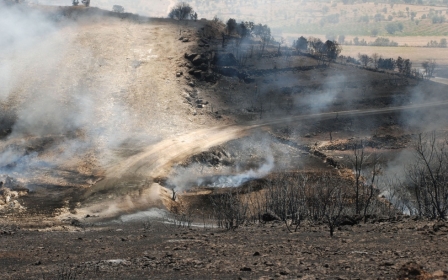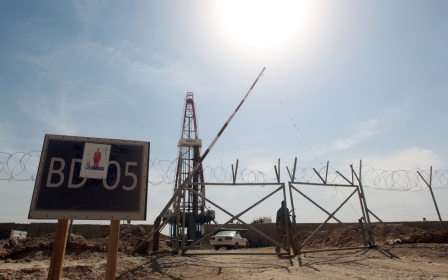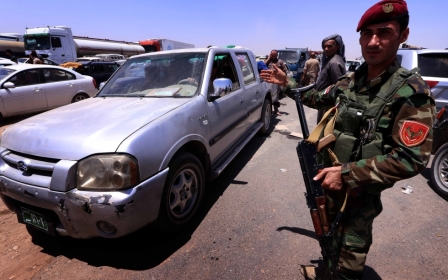Battle rages for Iraq's largest oil refinery

Iraq’s main oil refinery remains under siege on Wednesday after a major assault by Sunni militants, with staff telling news agencies that most of the facility was now under their control but the army claiming it is fighting back.
"The militants have managed to break in to the refinery. Now they are in control of the production units, administration building and four watch towers. This is 75% of the refinery," an official speaking from inside the refinery told Reuters.
Clashes erupted at the Baiji refinery complex in Salaheddin province, north of Baghdad, at around 10am (GMT) according to a senior official and a refinery employee.
The site, at Baiji - which is 210km north of Iraq - is the largest oil refinery in Iraq and had already been shut down and many employees evacuated due to major towns, including Mosul, no longer being supplied with refined products due to occupation by Sunni militants.
Officials told AFP a day earlier that the refinery had been shut down and many employees evacuated due to the militant offensive that has seen swathes of northern territory slip from government control. As a result, several major cities are no longer being supplied with refined oil products.
World oil producers have cautiously watched the unfolding chaos in Iraq, which currently exports around 2.5 million barrels of oil per day, but have thus far stressed that the country's vast crude supplies are safe - for now.
"The oil infrastructure as well as major production facilities are mostly concentrated in the south with terminals at Basra operating as normal," VTB Capital analyst Andrey Kryuchenkov told AFP.
Kryuchenkov cautioned however: "The situation remains very tense and highly uncertain."
Maliki's security spokesman, Lieutenant General Qassem Atta, later said that Iraqi forces had repelled the attack in fighting which left 40 militants dead. He did not mention security force casualties.
Maliki fires commanders
In a bid to see off the militant offensive, Maliki sacked several top security commanders on Tuesday evening, and then stood alongside several of his main rivals in a rare display of unity among the country's fractious political leaders.
Among those fired was the commander for the northern province of Nineveh, the first region to fall in the onslaught, which began on 9 June.
Maliki also ordered that one officer face court martial for desertion.
The dismissals came after soldiers and police fled en masse as insurgents on Tuesday last week swept into Nineveh's capital Mosul, a city of two million.
Some abandoned their vehicles and uniforms when faced with the insurgents, which are led by ISIL fighters but also include loyalists of executed dictator Saddam Hussein.
After taking Mosul, militants captured a major chunk of mainly Sunni Arab territory stretching towards the outskirts of the capital.
Also on Tuesday evening, Maliki appeared on television alongside other senior Sunni and Shiite political leaders, including the premier's fierce rival, parliament speaker Osama al-Nujaifi.
The group issued a joint statement pledging continuous dialogue and promising to preserve the country's unity.
And despite the early poor performance of the security forces, Pentagon spokesman Rear Admiral John Kirby said Iraqi troops, with help from Shiite volunteers, were "stiffening their resistance" around Baghdad.
"It certainly appears as if they have the will to defend the capital," he said.
Washington has already deployed an aircraft carrier to the Gulf, but President Barack Obama has insisted a return to combat in Iraq for US soldiers is not on the cards.
Secretary of State John Kerry has, however, said that drone strikes could be used.
Iranian President Hassan Rouhani, meanwhile, said Wednesday that the Islamic Republic "will do everything" to protect Shiite shrines in Iraqi cities against the militant assault.
The swift advance of militants has sparked international alarm, with UN envoy to Baghdad Nickolay Mladenov warning that the crisis was "life-threatening".
"Iraq faces the biggest threat to its sovereignty and territorial integrity" in years, he told AFP.
Jihadists are said to have killed scores of Iraqi soldiers as they pushed their advance, including in a "horrifying" massacre in Salaheddin province that has drawn international condemnation.
Facts on the facility
- The refinery is located in Salaheddin province, near the town of Baiji, 200 kilometres (120 miles) north of Baghdad.
- It produces some 300,000 barrels of refined petroleum products per day, accounting for 50 percent of the country's needs.
- It was completed in 1982 during now-executed dictator Saddam Hussein's rule, before the onset of international sanctions that crippled the country during the following decade.
- It is a main producer of petroleum products for Nineveh province, which has been completely overrun by militants, as well as Salaheddin and Kirkuk, where large areas are also outside government control.
- The refinery provides fuel for Iraq's problem-plagued electricity sector, which does not meet national demand, leading to daily power cuts.
-The militant offensive, which began on 9 June, led to a fall in demand for products from the refinery, so a reduced workforce was present when militants attacked the facility.
Video footage has been released purportedly by ISIL showing the takeover of the plant:
Further footage has allegedly shown smoke rising from the facility:
New MEE newsletter: Jerusalem Dispatch
Sign up to get the latest insights and analysis on Israel-Palestine, alongside Turkey Unpacked and other MEE newsletters
Middle East Eye delivers independent and unrivalled coverage and analysis of the Middle East, North Africa and beyond. To learn more about republishing this content and the associated fees, please fill out this form. More about MEE can be found here.




